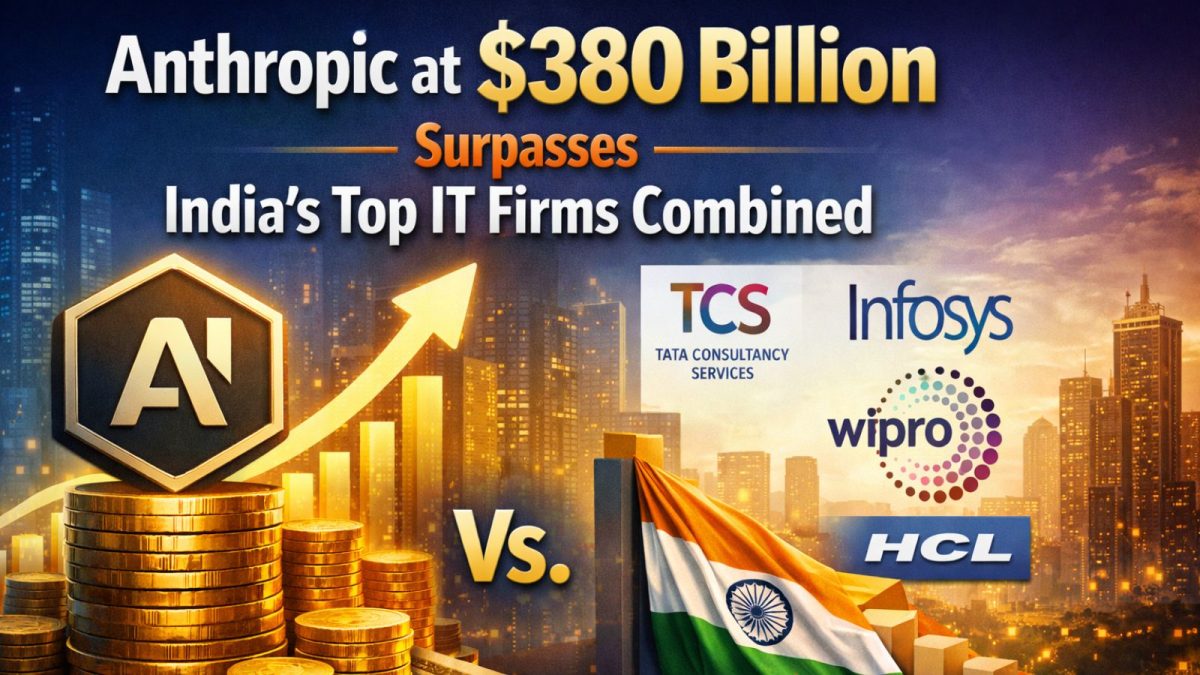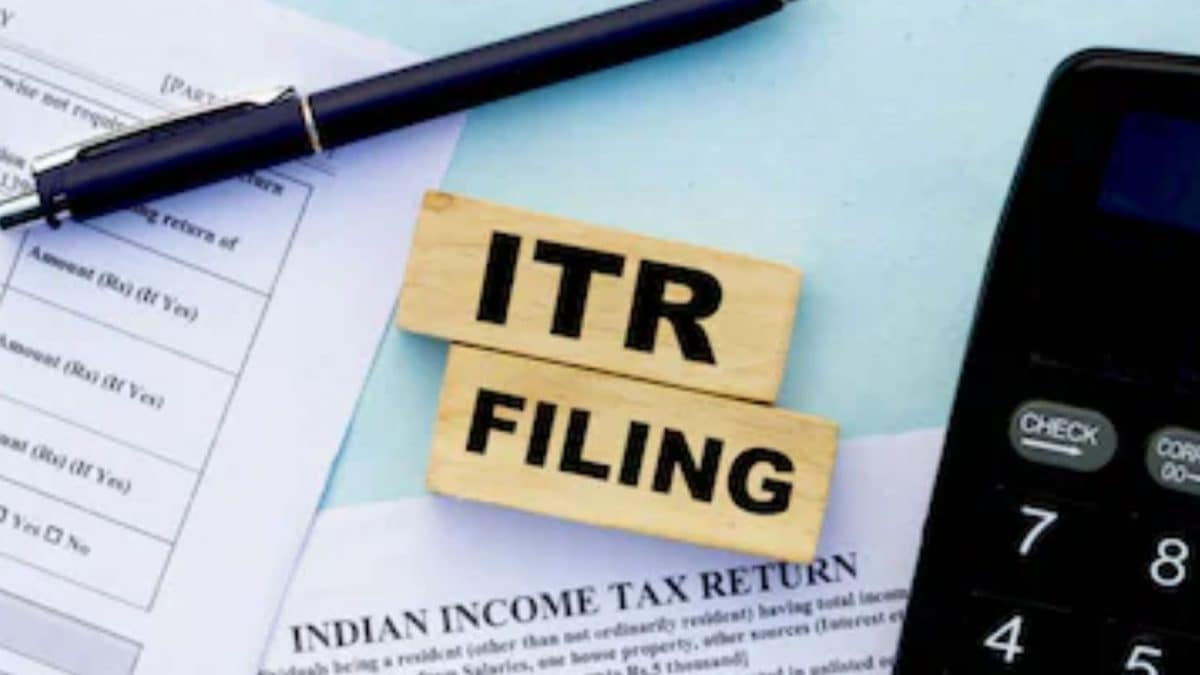Business
Tax notice alert! Buying land above Rs 30 lakh? Here’s why you may come under Income Tax Department scrutiny and how to avoid it – The Times of India

A new property purchase can feel like a proud milestone — until a letter from the Income Tax Department lands in your inbox asking where your money came from. Experts say that such notices are becoming increasingly common as tax authorities use advanced data analytics to verify whether property buyers’ declared income matches their level of investment.“Land purchases above Rs 30 lakh are mandatorily reported to the Income Tax Department by the Registrar’s office under Section 285BA (Statement of Financial Transactions). Once this data is captured in the taxpayer’s Annual Information Statement (AIS), the department cross-verifies whether the buyer’s declared income supports the investment,” said Abhishek Soni, CEO and Co-founder of Tax2win, in an interview with ET.Why land purchases attract I-T scrutinyWith tighter digital surveillance and automatic reporting of property deals, every high-value land transaction now feeds into the tax department’s monitoring system. Even those using legitimate savings may receive queries seeking an explanation of their funding source.According to Soni, the tax department’s primary concern is whether an individual is living beyond their declared means — a potential indicator of tax evasion. The most common notice seeks clarification on the “source of funds” used for the property purchase.Such scrutiny often arises when funds come from sources not automatically reflected in tax records — such as savings accumulated before tax filing began, gifts from relatives, inheritance, sale of gold or shares, or loans from friends or family.An income tax notice may also be triggered if there is a mismatch between the declared purchase value and the stamp duty value (SDV), or if the transaction appears undervalued. Under Section 133(6), tax authorities can seek information for up to three years from the relevant assessment year, and up to ten years if the unreported or “escaped” income exceeds Rs 50 lakh.Soni explained to ET that if the stamp duty value exceeds the actual purchase price by more than 10 per cent (and the difference is over Rs 50,000), the excess is treated as taxable income in the hands of the buyer under “income from other sources.”How to handle a tax noticeExperts advise that the first step after receiving an income tax notice is to respond promptly and accurately. “Organise your bank statements, loan documents, gift deeds, sale receipts and any other relevant records. The clearer your documentation, the quicker the resolution,” Soni said.Most notices provide a short response window. If more time is needed, taxpayers should at least file an acknowledgment and request an extension. Ignoring the notice or providing incomplete responses could lead to penalties under Section 272A(2) — Rs 100 per day until compliance — or even a full reassessment under Section 148, where the assessing officer can estimate income and proceed on their own judgment.Urban agricultural land purchases are also reportable, Soni said, as they are treated like capital assets. “While rural agricultural land purchases are less likely to be flagged, the department may still ask for proof of income if the transaction value looks disproportionate,” he added.How to avoid getting flaggedTax professionals recommend proactive financial transparency to avoid I-T scrutiny. “Maintain a clear money trail — record every transaction and avoid large cash payments,” Soni told ET.He added that formal documentation for all sources of funds — including family loans, inheritances, and sale proceeds — is crucial. “If such income isn’t reflected in your ITR, file an updated return before making the property purchase,” he advised.For those with multiple income streams, consulting a chartered accountant before large purchases is advisable to ensure income declarations and expenditures align.Soni concluded that with the government’s digital monitoring expanding, the tax department’s systems are becoming more data-driven. “Prevention is always better than scrambling for documents after a notice arrives. Paying taxes honestly and keeping proper documentation isn’t just about compliance — it’s about long-term financial peace,” he said.
Business
RBI Proposes 4 Major Changes In Kisan Credit Card Scheme: What Beneficiaries Must Know

Last Updated:
RBI releases draft to revise Kisan Credit Card Scheme, standardizing crop cycles, extending loan tenure to six years, and aligning credit limits with cultivation costs.


From Crop Cycles To Loan Tenure: 4 Key Changes In RBI’s KCC Proposal
Kisan Credit Card Scheme: The Reserve Bank of India (RBI) has released draft directions to revise the Kisan Credit Card (KCC) Scheme, aiming to expand coverage, streamline operations, and align credit norms with evolving agricultural needs.
Standardized Crop Cycles And Extended Loan Tenure
As outlined in the draft, crop seasons have been standardized to introduce uniformity in loan sanctioning and repayment schedules. Short-duration crops will now be treated under a 12-month cycle, while long-duration crops will follow an 18-month cycle.
Example:
A farmer growing paddy or wheat (harvested in a few months) will follow a 12-month loan cycle.
A farmer growing sugarcane (which takes 12–18 months) will get an 18-month cycle.
To better align loan tenure with these crop cycles, especially for longer-duration crops, the overall tenure of the KCC facility has been extended to six years. The move is expected to provide farmers with greater flexibility in repayment and reduce rollover pressures.
Example:
If a farmer growing sugarcane faces a bad monsoon in Year 2, he doesn’t have to rush repayment immediately. The 6-year window gives more breathing space and reduces pressure to take fresh loans to repay old ones.
The draft directions apply to Commercial Banks, Small Finance Banks, Regional Rural Banks, and Rural Co-operative Banks, indicating a system-wide implementation once finalized.
Drawing Limits Linked To Cost Of Cultivation
The RBI has proposed aligning drawing limits under the KCC scheme with the scale of finance for each crop season . This adjustment aims to ensure that farmers receive credit in line with the actual cost of cultivation, addressing concerns around under-financing.
Example:
If growing cotton in a district costs Rs 60,000 per acre (as per agriculture department data), banks will align KCC limits accordingly — instead of giving a lower, outdated amount like Rs 40,000.
In addition, the draft expands eligible components under the KCC framework. Expenses related to technological interventions—such as soil testing, real-time weather forecasts, and certification for organic or good agricultural practices—have been included within the existing 20% additional component earmarked for repairs and maintenance of farm assets .
Example:
If a farmer wants to:
- Test soil before sowing
- Subscribe to real-time weather alerts
- Get organic farming certification
These costs can now be covered under KCC instead of paying from pocket.
What Is Kisan Credit Card Scheme?
The Kisan Credit Card scheme aims at providing adequate and timely credit support from the banking system under a single window with flexible and simplified procedures to the farmers for their cultivation and other needs.
The KCC scheme was introduced in 1998 for the issue of Kisan Credit Cards to farmers on the basis of their holdings for uniform adoption by the banks so that farmers may use them to readily purchase agriculture inputs such as seeds, fertilizers, pesticides etc. and draw cash for their production needs.
KCC covers post-harvest expenses, produce marketing loan, consumption requirements of farmer households, working capital for maintenance of farm assets and activities allied to agriculture, investment credit requirement for agriculture and allied activities.
February 14, 2026, 12:49 IST
Read More
Business
Four ports under construction in Andhra Pradesh, Centre tells Lok Sabha – The Times of India

The Centre is pushing port-led infrastructure expansion in Andhra Pradesh, with four ports currently under construction, even as it steps up nationwide port modernisation and efficiency measures.As per information shared on Friday in Parliament, the ports under construction in Andhra Pradesh are Mulapeta Port (formerly Bhavanapadu Port) in Srikakulam district, Machilipatnam Port in Krishna district, Ramayapatnam Port in SPSR Nellore district, and Kakinada SEZ Port in Kakinada district.The government said it is undertaking measures such as mechanisation of berths and terminals, digitalisation and logistics integration, new berth construction, capital dredging for larger vessels, and connectivity upgrades across road, rail and waterways.It has also rolled out initiatives including elimination of manual forms, direct port delivery and entry, container scanners, e-delivery of documents and payments, RFID-based gate automation and Maritime Single Window platform SagarSetu 2.0 to cut vessel turnaround time.Two new ports — Vadhavan Port in Maharashtra and Galathea Bay Port in Andaman and Nicobar Islands — have been notified as major ports. At present, 12 major ports operate under the central government, while 68 other-than-major ports are under state governments.Under the Sagarmala scheme, financial assistance is provided across five pillars including port modernisation, connectivity, port-led industrialisation, coastal community development and inland water transport.The government has also launched HaritSagar green port guidelines, the Green Tug Transition Programme (GTTP), and the Cruise Bharat Mission to promote sustainability and cruise tourism.The information was given by Union Minister of Ports, Shipping and Waterways Sarbananda Sonowal in a written reply to the Lok Sabha.At present, 12 major ports operate under the administrative control of the central government, while 68 operational other-than-major ports are under state governments.The government said it has launched multiple national programmes for port development, expansion and upgradation. Under the Sagarmala scheme, financial assistance is provided under five pillars — port modernisation, port connectivity, port-led industrialisation, coastal community development, and coastal shipping and inland water transport.Green and sustainability-linked initiatives have also been introduced. The government has launched HaritSagar green port guidelines to promote environment-friendly port ecosystems and initiated the Green Tug Transition Programme (GTTP) to shift harbour tugs towards greener fuel alternatives.Further, the Cruise Bharat Mission has been launched to prioritise cruise tourism development across the country.
Business
Anthropic At $380 Billion Surpasses India’s Top IT Firms Combined As AI Fears Rock Stocks

Last Updated:
Anthropic’s AI tools have triggered a sharp decline in Indian IT stocks like TCS, Infosys, Wipro, eroding Rs 3,11,873 crore in market value.


Anthropic’s valuation surpassed combined value of total IT firms in India
The entire Information Technology (IT) industry in India is battering with the existential threat, which comes on the heels of rising generative AI, posing doubts over the viability of their business model.
Stocks of the IT industries, including Tata Consultancy Services (TCS), Infosys, Wipro, etc., hit brutally over the past week. This was triggered with the launch of new AI tools by Anthropic’s Claude for Cowork, which is like an office teammate helping the user to do tasks such as file sorting, reading legal drafts, etc.
Recommended Stories
-
From TCS To Infosys: Top IT Stocks Wipe Out Rs 3 Lakh Crore In Market Value

-
Black Friday For IT Stocks? TCS, Infosys, Wipro Seen Under Pressure As US Tech Slumps

-
Infosys, TCS, TechM And Other IT Stocks Slide Up To 5% On Renewed AI Concerns After US Jobs Data

-
Stocks To Watch: Coal India, IRCTC, SpiceJet, Wipro, Infosys, GAIL India, Biocon, And Others

Anthropic’s Valuation vs Nifty IT Index
Anthropic’s phenomenal valuation rise has surpassed the combined value of India’s top IT firms. Standing at a valuation of $380 billion, the US-based AI company has eclipsed India’s Nifty IT index, whose market cap was at $296.4 billion by the time of writing this report.
Investors are accelerating their exit from technology stocks as concerns intensify that advanced artificial intelligence tools could disrupt core segments of the global software and IT services industry.
This week alone, TCS, Infosys and HCL Technologies dragged 9-11 per cent.
The sharp correction has wiped out substantial investor wealth. Based on intraday lows, the combined market capitalisation of the top five domestic IT companies has eroded by nearly Rs 3,11,873 crore this week.
TCS emerged as the biggest laggard, losing Rs 1,28,800 crore in market value, with its market capitalisation slipping to Rs 9,35,253 crore. The fall also pushed it to the fifth-most valued listed company from the fourth position.
Infosys has seen its market capitalisation shrink by Rs 91,431 crore following a 15 per cent decline this week. HCL Technologies has lost Rs 53,647 crore in market value over the past five trading sessions. Wipro and Tech Mahindra have also recorded declines, with their market capitalisations falling by Rs 22,762 crore and Rs 15,233 crore, respectively, during the same period.
| Company Name | Mcap ($Billion) |
| Tata Consultancy Services | 107.4 |
| Infosys | 61.2 |
| HCL Technologies | 43.6 |
| Wipro | 24.8 |
| Tech Mahindra | 16.6 |
| LTIMindtree | 16.7 |
| Persistent Systems | 9.5 |
| Oracle Financial Services Soft | 6.4 |
| Coforge | 5 |
| Mphasis | 5.2 |
| Total | 296.4 |
Source: Bloomberg
Anthropic’s Recent Funding Round
Anthropic has recently raised $30 billion in Series G funding led by GIC and Coatue, valuing Anthropic at $380 billion post-money, as announced by the company in the press release.
The investment will fuel the frontier research, product development, and infrastructure expansions that have made Anthropic the market leader in enterprise AI and coding.
February 14, 2026, 09:15 IST
Read More
-

 Entertainment1 week ago
Entertainment1 week agoHow a factory error in China created a viral “crying horse” Lunar New Year trend
-

 Tech1 week ago
Tech1 week agoNew York Is the Latest State to Consider a Data Center Pause
-

 Business4 days ago
Business4 days agoAye Finance IPO Day 2: GMP Remains Zero; Apply Or Not? Check Price, GMP, Financials, Recommendations
-

 Tech1 week ago
Tech1 week agoNordProtect Makes ID Theft Protection a Little Easier—if You Trust That It Works
-

 Tech1 week ago
Tech1 week agoPrivate LTE/5G networks reached 6,500 deployments in 2025 | Computer Weekly
-

 Fashion4 days ago
Fashion4 days agoComment: Tariffs, capacity and timing reshape sourcing decisions
-

 Business1 week ago
Business1 week agoStock market today: Here are the top gainers and losers on NSE, BSE on February 6 – check list – The Times of India
-

 Business1 week ago
Business1 week agoMandelson’s lobbying firm cuts all ties with disgraced peer amid Epstein fallout











